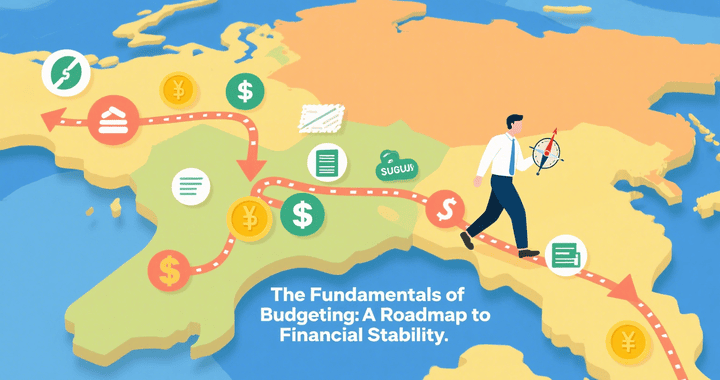The Fundamentals of Budgeting: A Roadmap to Financial Stability

In an era of rising costs and economic uncertainty, the ability to effectively manage one's personal finances has never been more crucial. At the heart of this financial mastery lies the art of budgeting – a powerful tool that can transform the way individuals approach their money and achieve long-term financial stability.
Budgeting, in its essence, is the process of creating a plan for how you will spend and save your income. It involves tracking your expenses, setting financial goals, and allocating your resources in a way that aligns with your priorities. While the concept may seem straightforward, the true power of budgeting lies in its ability to provide a clear roadmap towards financial security and freedom.
Tracking Your Expenses: The Foundation of Budgeting
The first step in building a successful budget is to understand where your money is going. This requires a meticulous tracking of your expenses, categorizing them into fixed (rent, mortgage, insurance), variable (groceries, utilities, transportation), and discretionary (entertainment, dining out, hobbies) categories.
By closely monitoring your spending habits, you can identify areas where you may be overspending and opportunities for potential savings. This information is crucial in the next phase of the budgeting process – setting financial goals.
Setting Financial Goals: Aligning Your Priorities
With a clear understanding of your current financial landscape, you can now turn your attention to defining your short-term, medium-term, and long-term financial goals. These goals may include paying off debt, building an emergency fund, saving for a down payment on a house, or planning for a comfortable retirement.
The key is to ensure that your goals are specific, measurable, achievable, relevant, and time-bound (SMART). This approach not only provides a clear roadmap but also helps you stay motivated and accountable throughout the budgeting process.
Building a Balanced Budget
Armed with your expense tracking data and financial goals, you can now begin the process of creating a balanced budget. This involves determining your total income from various sources, such as your primary job, side hustles, or investments, and then allocating those funds to your essential expenses, savings, and discretionary spending.
One popular budgeting strategy is the 50/30/20 rule, which suggests allocating 50% of your income to essential expenses, 30% to discretionary spending, and 20% to savings and debt repayment. While this ratio may not be suitable for everyone, it provides a solid framework for achieving a sustainable balance between your needs, wants, and long-term financial objectives.
Budgeting Strategies and Techniques
As you embark on your budgeting journey, you may find that a one-size-fits-all approach may not work for your unique financial situation. Fortunately, there are various budgeting strategies and techniques that you can explore to find the approach that best suits your needs.
One such technique is the envelope budgeting method, where you allocate cash to different expense categories in physical or digital envelopes. This hands-on approach can help you stay accountable and mindful of your spending. Alternatively, the zero-based budgeting method involves assigning every dollar of your income to a specific purpose, ensuring that your budget adds up to zero at the end of the month.
Adapting and Adjusting Your Budget
Budgeting is not a one-time exercise; it is an ongoing process that requires regular review and adjustment. As your financial circumstances change, whether due to a job change, a major life event, or unexpected expenses, it is crucial to adapt your budget accordingly.
Regularly reviewing your budget and making necessary tweaks can help you stay on track and prevent financial setbacks. Additionally, maintaining a positive and flexible mindset towards budgeting can help you stay motivated and accountable, even during challenging times.
Conclusion
Budgeting is not merely a financial tool; it is a transformative practice that can empower individuals to take control of their financial lives and achieve long-term stability. By mastering the fundamentals of budgeting, including expense tracking, goal setting, and strategic resource allocation, you can embark on a journey towards financial freedom and security.
Remember, the path to financial well-being is not a straight line; it is a continuous process of learning, adapting, and staying committed to your financial goals. By embracing the power of budgeting, you can unlock a world of financial possibilities and pave the way for a more prosperous and fulfilling future.
